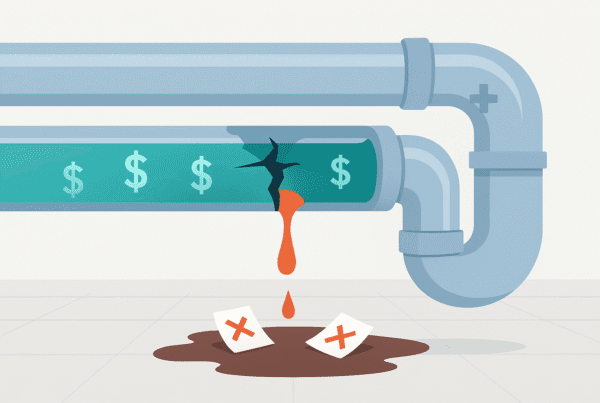Selling a urology practice in Philadelphia presents a significant opportunity. The market is active, with private equity firms controlling nearly 40% of the region’s urology practices. This signals strong buyer interest, but it also creates a competitive landscape that requires informed navigation. This guide offers a high-level overview of the market, key considerations for sellers, and the steps involved in a successful transition. We’ll help you understand the current environment to better plan your next steps.
The Philadelphia Urology Market: What You Need to Know
The Philadelphia region is one of the most dynamic markets for urology practice sales in the country. Understanding the two main forces at play is the first step toward a successful transition.
A Magnet for Investment
Private equity (PE) firms are aggressively acquiring practices, seeing the value in specialized medicine. With PE-backed groups controlling nearly 40% of the local urology market, there is a clear and established appetite for practices like yours. For a seller, this means a larger pool of potential, well-capitalized buyers and the potential for competitive offers. It also means you will likely be negotiating with sophisticated financial professionals.
The Consolidation Wave
Alongside PE interest, there is a continued trend of urologists moving from solo-practice to employment with hospitals or large super-groups. This consolidation makes established independent practices increasingly rare and, therefore, more valuable. Buyers are looking for established patient bases and referral networks to expand their footprint, making your practice an attractive target.
Key Considerations
Achieving a premium valuation is a top priority, but a successful sale involves more than just the final price. You must also consider the structure of the deal and your role after the transaction. Selling to a private equity firm, for example, involves negotiating complex legal agreements where your personal and clinical goals may differ from the buyer’s financial objectives. Proper timing is also critical, as market conditions can shift quickly. Furthermore, key assets like specialized surgical equipment or practice-owned real estate are not just add-ons. They are major negotiating points that can dramatically change the final terms and your net proceeds.
Recent Transactions Signal a Strong Seller’s Market
The trend toward consolidation isn’t just a theory. It’s happening now, both in our backyard and across the nation. These deals show a clear path to sale for well-run urology practices.
Local Platform-Building
A key example is the acquisition of MidLantic Urology, with its many locations in the greater Philadelphia area, by the private equity-backed group Solaris Health. This wasn’t a small transaction. It was a strategic move to build a major urology platform in the region. This tells us that large, motivated buyers are actively seeking to partner with established practices right here.
The National Picture
This activity mirrors a national trend, with groups like U.S. Urology Partners and Urology America making similar acquisitions in other major cities. The buyers in today’s market are typically:
- Private Equity-backed platforms looking to grow.
- Large, regional super-groups expanding their territory.
- Hospital systems aiming to secure their referral networks.
The Sale Process
Selling your practice follows a structured path. While every deal is unique, the journey generally moves through three main phases. It begins with preparation, where we help you organize your financials, understand your practice’s true value, and craft the story that will attract the right buyers. Next comes the outreach phase, where your practice is confidentially presented to a curated list of qualified buyers to generate competitive interest and negotiate a strong initial offer. The final and most critical stage is due diligence. This is where the buyer performs a deep dive into your operations, financials, and legal standing. Many deals fall apart here due to surprises or poor preparation. A smooth closing depends on having everything in order long before this stage begins.
How Buyers Determine Your Practice’s Value
Forget simple rules of thumb like a multiple of your annual revenue. Sophisticated buyers, especially private equity firms, value your practice based on its profitability and future potential. The starting point is a key metric called Adjusted EBITDA (Earnings Before Interest, Taxes, Depreciation, and Amortization). This figure represents your practice’s true cash flow. We calculate it by taking your net income and adding back non-operational or owner-specific costs, like an above-market salary, personal car leases, or one-time expenses. This Adjusted EBITDA is then multiplied by a numberthe “multiple”to arrive at your practice’s Enterprise Value. The multiple isn’t random. It is determined by several risk and growth factors.
| Factor | Lower Multiple | Higher Multiple |
|---|---|---|
| Provider Model | Relies on a single owner | Associate-driven, multiple providers |
| Growth | Flat or declining revenue | Consistent year-over-year growth |
| Ancillary Services | Limited to core procedures | Offers diverse in-office services |
| Scale | Lower annual profit (<$500K) | Higher annual profit (>$1M) |
A comprehensive valuation is the foundation of a successful practice transition.
Post-Sale Considerations
Closing the deal is a milestone, not the finish line. A successful transition plan looks beyond the transaction date and defines your future. You need to consider what your role will be post-sale. Will you continue practicing, and if so, for how long and under what conditions? Protecting your clinical autonomy is a critical point to negotiate upfront. Equally important is the future of your team. Your experienced staff is a major asset to the buyer, and ensuring a smooth transition for them is key to preserving the practice’s value and your legacy. Finally, practical matters like the legal transfer of medical records custody must be handled properly. Thoughtful planning ensures your professional legacy and your team are protected long after you’ve moved on.
Frequently Asked Questions
What is the current market environment for selling a urology practice in Philadelphia?
Philadelphia’s urology market is highly active and competitive, with private equity firms controlling nearly 40% of local urology practices. This indicates strong buyer interest and a dynamic environment ideal for sellers but requires informed navigation.
Who are the typical buyers interested in acquiring urology practices in Philadelphia?
Typical buyers include private equity-backed platforms looking to expand, large regional super-groups aiming to grow their territory, and hospital systems seeking to secure referral networks.
What factors influence the valuation of a urology practice in Philadelphia?
Valuation is primarily based on Adjusted EBITDA, which represents true cash flow, multiplied by a multiple determined by risk and growth factors such as provider model, growth rate, ancillary services, and practice scale.
What are key considerations beyond price when selling a urology practice?
Besides price, sellers must consider deal structure, post-sale roles, negotiation of clinical autonomy, timing, and the handling of major assets like surgical equipment and real estate that can impact final terms.
What steps are involved in the sale process of a urology practice?
The sale process involves preparation (organizing financials, valuation, and marketing), outreach (confidential presentation to qualified buyers and offer negotiation), and due diligence (buyer assessment of operations, financials, and legal status) before closing.



